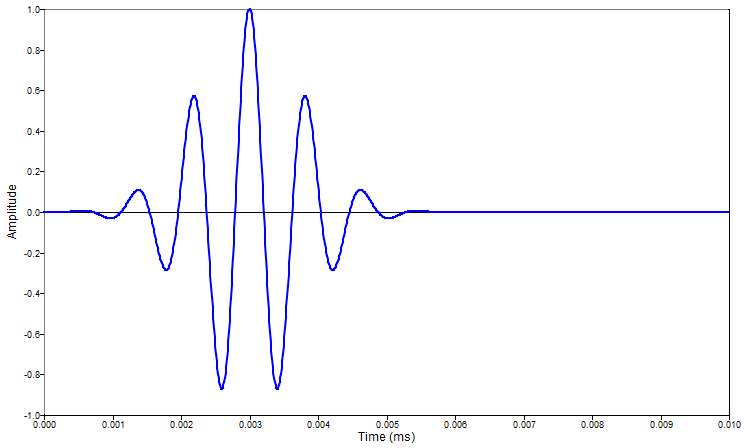gauspuls
Generate a sampled Gaussian modulated sinusoidal pulse centered at zero, with a specified center frequency and fractional bandwidth.
Syntax
p = gauspuls(t)
p = gauspuls(t, fc)
p = gauspuls(t, fc, bw)
p = gauspuls(t, fc, bw, bwr)
tc = gauspuls('cutoff', fc, bw, bwr, tpr)
Inputs
- t
- The times at which to generate the signal, or 'cutoff' to compute the time (> 0) at which the envelope falls to tpr dB.
- fc
- The center frequency. (default: 1000 Hz)
- bw
- The fractional bandwidth. (default: 0.5)
- bwr
- The fractional bandwidth reference. (default: -6)
- tpr
- The trailing pulse reference. (default: -60)
Outputs
- p
- The gaussian-modulated pulse.
- tc
- The positive time at which the envelope falls to tpr dB.
Example
Plot a pulse with a 1200 Hz center frequency and a 0.4 fractional bandwidth, centered at t=3 ms on a 10 ms interval, sampled at 100 KHz.
t = [0:0.01:10] * 0.001;
p = gauspuls(t - 0.003, 1200, 0.4);
plot(t, p);
xlabel ('Time (ms)');
ylabel ('Amplitude');

Comments
gauspuls is commonly used as an input to pulstran.